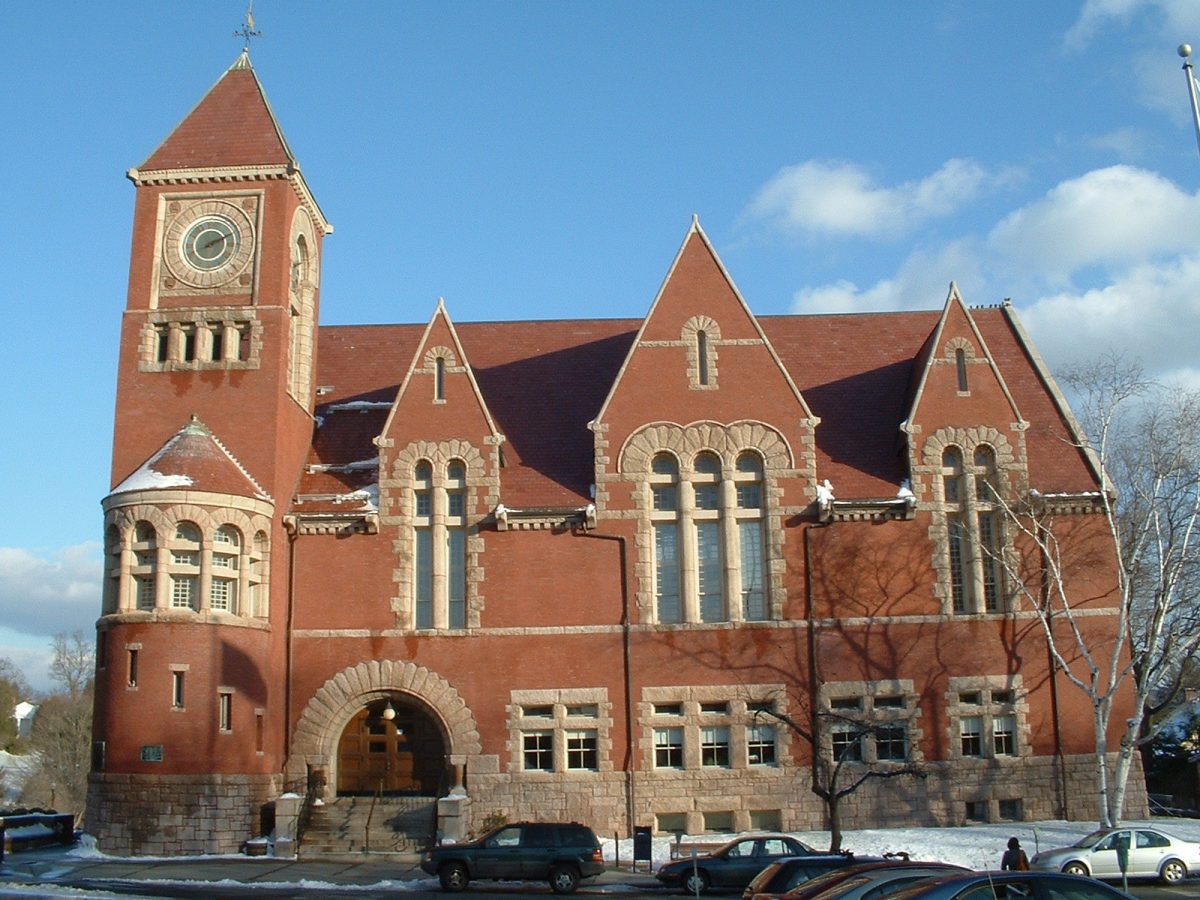For the past five years, speech and language pathologists Nerissa Hall, a doctoral candidate at UMass, and Hillary Jellison, a Northeastern University graduate, have led a summer camp teaching children with birth defects, cerebral palsy, autism, Down syndrome or developmental delays more effective ways to communicate.
Camp Communicare, named after the summer’s theme of core vocabulary, uses music, physical and occupational therapies, such as yoga, to connect with campers, who travel from South Hadley, Easthampton, Westfield and Longmeadow for the camp, which lasts four days per week.
The children who attend Camp Communicare have a wide range of speech abilities. But speech is just one method people use to express themselves. Many of the children benefit from non-oral, augmentative and alternative communication (AAC), according to Hall.
“AAC refers any mode of communication other than oral speech, so it can range from gestures to the use of pictures, to writing,” Hall explained.
Other, more high-tech alternatives are modeled after laptops. Campers – ranging from age 3 to 21 – use buttons to produce graphic images on the screen as a way of communication. For some of the attendees, a single button could represent an entire sentence. The camp also helps parents and staff learn how to use the devices so they can better communicate with the children.
“We’ve quickly realized that we can’t be everywhere all the time and to be able to help support the family or staff to facilitate use of the device [during the year] is a very important factor,” Jellison said.
This year, all of the campers had devices to use during the day, despite some campers not having them at home. The Prentke Romich loaning library provided some of these and families donated others.
Prenteke Romich is the company that manufactures the devices.
Communicare hopes to progress the field of AAC in western Massachusetts by providing people with the tools and training they need to communicate effectively.
“Our kids inspire us everyday, our families inspire us everyday,” Hall said. “And now the challenge is for us to be creative.”
But the camp is not just about the devices taking a total communication approach, according to Hall. Total communication refers the variety of way people communicate including gestures, pictures and orally.
“Technology may let us down,” she said. “We want to help empower them to be an effective communicator using a variety of modes.”
She’s observed that the children benefit from being immersed in the group environment that Camp Communicare provides.
“We find that after the first week or so, the kids are really starting to form bonds, enjoy seeing each other, help each other with their devices, and really interact on a very genuine level,” Hall said. These are “intrinsic things we can’t create in a one-on-one environment in a therapy session.”
During the five-week camp, the children spend Thursdays at Camp Jericho where they are be able to use the accessible playground, go swimming, boating and fishing, or take a horseback ride at the Therapeutic Equestrian Center.
Communicare works closely with the UMass speech pathology master’s program as students are required to complete coursework in addition to a clinical placement, and the summer camp is one way to satisfy that field requirement.
The camp supplements the department’s graduate level AAC course by providing the “opportunity for students to have a theoretical foundation in AAC and then the really intensive, hands-on experience working with a range of devices,” Hall said. “We feel strongly that we’re training the next generation of leaders within the field of AAC.”
The summer camp is just one service provided by Communicare, a company co-founded by Hall and Jellison in February 2011. Prior to founding the company, the pair worked as speech therapists at the Holyoke Medical Center, where they developed an AAC clientele.
David Barnstone can be reached at [email protected].













Duncan Edwards • Sep 17, 2012 at 5:09 am
The camp sounds a brilliant idea!
There are so many people benefiting from advances in AAC. The internet means that people can now research their own devices instead of just being ‘prescribed’ something that in the past they did not always want. The iPad and other tablets have made the whole field more inclusive and will shake things up for current manufacturers who previously enjoyed a niche with very high barriers to entry and prices to match.
We explore lots of communication aids and devices and assistive technology on our blog http://communicationaids.info We also have a free guide to using switches for communication, gaming and education.